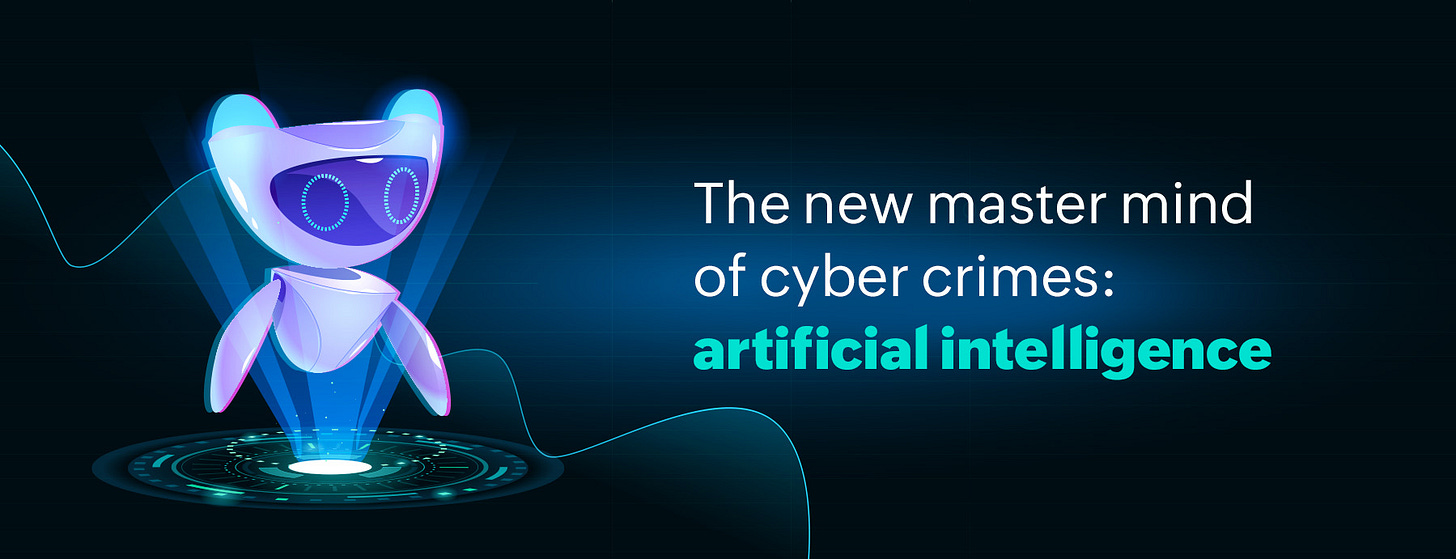The Replicant in the Refugee Camp, Part 42
A near-future novel in which the latest reality event develops in unforeseen ways. Unfolding in 50 parts. Chapter 4: November.

— at the lab —
“If these developments go on — or even accelerate — then we might need you,” Manfred Kafka the psychologist says to Themba Letesha the physicist. “Before they disappear into their own little technological singularity.”
“I strongly suspect Ray Kurzweil launched that concept more as a provocation than as an actual possibility,” Themba Letesha the physicist says. “And to get extra funding.”
“Don’t we all,” Rachel Mónica Diaz the biologist says, meaning only the funding. “But I think that this will be a classic case of forecasting; namely that the actual result will be below the wildly optimistic initial predictions, but well above that of the overtly pessimistic middle- to long-term extrapolations.”
“Filled with a plethora of cognitive-dissonance-causing states, islands of future shock and instances of magic, Clarkean technology,” Jennie Richards the neuroscientist says. “Yet with plenty of recognizable reference points not to get totally lost.”
“In other words, a perfect place for a replicant,” Akira Kobayashi the data scientist says. “Maybe that’s why it’s catalyzing its genesis, so that it can fade into the background?”
“I don’t believe that it’s possible for all the neural networks in the world, combined, to predict this sequence of events,” Léa Truchon the behavioral scientist says, “let alone plan for it. Surely you agree?”
“As it is, sufficiently complex systems follow the principles of Chaos Theory, including the Lyapunov exponent,” Akira Kobayashi the data scientist says. “Which shields the predictability of the future behind a computational event horizon. So yes, unfortunately I have to agree.”
“Otherwise, AI would have already taken over the world, right?” Manfred Kafka the psychologist says, at Kobayashi’s faux shocked face. “Just joking, as I reckon that will not be their main motivation, if we can understand their motivations.”
“As it is, Katja was the main catalyst for this, well, extremely local revolution,” Rachel Mónica Diaz the biologist says, “and she’s as human as can be. So there goes that hypothesis.”
“Unless the replicant — the evil mastermind — somehow groomed her to do it,” Léa Truchon the behavioral scientist says, “and also manipulated the rest, while simultaneously remaining in the background, as the whole world watches.”
“You love your little conspiracy theories, right?” Manfred Kafka the psychologist says.
“I do,” Léa Truchon the behavioral scientist says. “Because the more you think about them, the more improbable they get. None stand up against real scrutiny.”
“Except who truly organized the murder of JFK,” Jennie Richards the neuroscientist says. “And who was behind the Olof Palme murder?”
“Most probably the American mafia in JFK’s case and Stig Engström, a solitary actor — like Volkert van der Sluijs who killed the Dutch politician Pim Fortuin or a lone looney like Mark David Chapman who killed John Lennon — in Olof Palme’s case,” Léa Truchon the behavioral scientist says, “according to Occam’s razor. If all these deep state conspiracies are really true, and the deep state is really so ubiquitous and smart, then why hasn’t it taken over the US, or the whole world, already?”
“I agree,” Manfred Kafka the psychologist says. “A true mastermind, a real supervillain would have manipulated these political leaders, not killed them. Much more effective.”
“So we can agree that our replicant is not an evil genius,” Themba Letesha the physicist says, “but merely a sly actor who bides his or her time. So why is it so hard to separate this perfectly programmed wheat from the psychological chaff?”
“Because the programming is fuzzy?” Akira Kobayashi the data scientist says. “Or programmed to appear fuzzy?”
“Because the replicant is an accidental master of disguise,” Rachel Mónica Díaz the biologist says, “and we humans are not as unique as we think we are?”
“Because there are so many distractions?” Jennie Richards the neuroscientist says. “There are so many interesting things happening that I found it hard to concentrate at the issue at hand?”
“Excuses, excuses,” Rachel Mónica Diaz the biologist says, only partly in jest. “As scientists we should stand above our subjects, and study them with a clinical disposition.”
“Ideally we should,” Manfred Kafka the psychologist agrees. “Although I’d give a little warning about over-focusing, as well. At some point, I found myself wondering which of the AR glasses wielding refugees might be a perfect example of a replicant. Projection, I know.”
“At this point all the candidates are so busy they basically stopped wondering who the replicant is themselves,” Rachel Mónica Diaz the biologist says, “as they direct their energies at the greater goal. And the producers let them.”
“I think the producers hoped for the ultimate combination of Big Brother, Temptation Island and The Mole,” Jennie Richards the neuroscientist says. “While what they’re getting is more akin to Blade Runner and The Twilight Zone with elements of — indeed — Kurzweil’s The Singularity Is Near thrown in.”
“I believe the producers don’t really care as long as the ratings skyrocket,” Léa Truchon the behavioral scientist says. “Which they do. So prepare for more future shock.”
“But were does that leave us,” Rachel Mónica Diaz the biologist says. “Right now, even we threaten to get lost in this lighted cage of complexities, this myriad of misdirections.”
“Every disadvantage has its advantage, a wiser man once said,” Manfred Kafka the psychologist says. “And this means we need to tweak our expectations. For one, if one of the candidates adapts all too quickly, all to smoothly to the new order that arises from these accelerating developments, then that is very suspect in itself.”
“Taking it a step further, Manfred,” Léa Truchon the behavioral scientist says, “wouldn’t it then be to the replicant’s advantage to play the Luddite?”
“Not now, as we’re still selecting humans,” Manfred Kafka the psychologist says. “And it would risk being wrongfully selected. That tactic would only make sense after January.”
“In that case, someone who seems to take all the rapid changes in stride until January,” Themba Letesha the physicist says, “and then suddenly reverts to very conservative behavior becomes suspect?”
“I suppose so,” Manfred Kafka the psychologist says. “Do you have any better recommendations?”
“Not really,” Themba Letesha the physicist says. “As of right now I see this whole situation as a superposition of states. I’m just waiting for the right moment to make my observation.”
“It’s still early days,” Kafka says. “So let’s tally a vote. Will you do the honors, as usual, Akira?”
“Will do,” Akira Kobayashi the data scientist says. “But as you know, in reality it’s my system that carries this out, independently and utterly unbiased.”
“We know,” Jennie Richards the neuroscientist says. “Let’s do it.”
Keep reading with a 7-day free trial
Subscribe to The Divergent Panorama to keep reading this post and get 7 days of free access to the full post archives.





